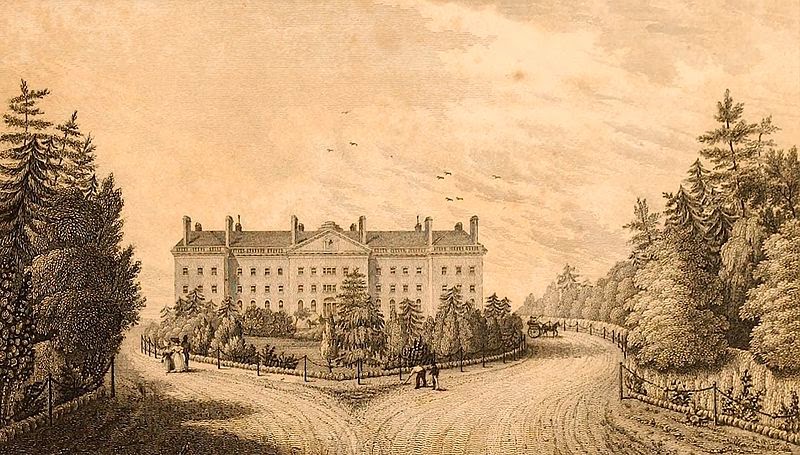ONE HUNDRED AND EIGHTY SIX YEARS AGO TODAY, on April 20 1828, Jefferson Tiberius Faulkmore was purported to have committed suicide in New York. We have no absolute confirmation of this fact, and it should be stated that scarcely any evidence of Faulkmore's existence is verifiable at all. It is our intent to summarize here in this criminally brief entry all that is known or thought to be known about this hitherto little recognized American poet.
 |
| Jefferson Tiberius Faulkmore b.1799-d.1828(?) |
He engaged himself in a number of occupations over the next six years; he was briefly a typesetter, a teacher, a bank clerk and a scrivener. He also wrote verse during this time, as he sought publication for a handful of poems in various literary journals between 1824 and 1826: The Writing Desk, The Chimes, El Borabo and The Magpie. In a letter dated 1826 to his Aunt, Jefferson writes: "I have submitted my 'Magpie' to a number of magazines for consideration, but as the others have been summarily rejected I have no reason to expect either to see it in print or to have its probably many deficiencies elaborated upon by a member of any editorial body." One of these poems, The Magpie, was indeed published in 1829 by The Hartford Cabinet of Literature & Science, but Mr. Faulkmore would never know this. In March of 1827, after the death of his wife, he made the decision to embark upon the nautical adventure that had remained a fantasy since his childhood and from which he may or may not have returned. He took to the sea aboard The Grampus, a whaling vessel that departed from New Bedford, Mass. in June of the same year and was never seen again.
All that remains to tell of the existence of Jefferson Tiberius Faulkmore is perhaps best omitted, for it cannot be reconciled with reality, but I will let the reader be the judge. In 1941 it was discovered in the records of Bloomingdale Lunatic Asylum in New York that one of the inmates there had in 1828 committed suicide by slashing open his veins with a shard of broken crockery. A note accompanying the remains of the inmate was dated April 20, ten months after the Grampus had set sail, and signed with a hastily scrawled J.T. Faulmore (sic). The content of the note was brief, stating only that the inmate had "no further business to conduct among those who pass as men except in shadows" and "no further desire to dream unto death". Upon further investigation it was determined that the asylum had had neither an inmate by the name of Faulmore nor Faulkmore on record.
 |
| Bloomingdale Lunatic Asylum, New York |
There was a time when this little known poet could be done much greater justice than I am able to do here. My own neglect in never having including Mr. Faulkmore in any of my renowned poetry anthologies is utterly unforgivable. Had I had more foresight I could have made certain that this fine specimen of versifier was as known to the literate public as all of the other American poets that I thus immortalized. Would that I could present to those seekers of beauty and lovers of verse the poems of Jefferson Tiberius Faulkmore; equally would I like to place before the public the few pieces of personal correspondence that he wrote, but alas, all is lost. At one time I had in my possession Mr. Faulkmore's extant letters and copies of his unpublished poems. These were burned by an associate of mine in an act of utter idiocy. In the matter of locating the only piece of writing by Mr. Faulkmore to ever see publication, The Magpie as printed in the November 1829 issue of The Hartford Cabinet of Literature & Science, I am equally deficient. Years ago I was foolish enough to loan the sole copy that I had in my possession to another literary man, and it was, alas, not found among his papers when he died.
In a letter written in September of 1842, Mr. Edgar Allan Poe wrote to me of "The Magpie" that it was "as fine a poem, in both the style of its versification & expression and its originality, as I have recently encountered. I wonder at its omission from your "Poets of America". That it has been published just once, years ago, and forgotten is as unfortunate for the public as it must have seemed for the poet." I cannot doubt the sincerity of these words, for three years later Mr. Poe would confirm his enthusiasm for Mr. Faulkmore's verse beyond any doubt by engaging in a flattery that Charles Colton would no doubt refer to as its most sincere of forms.

No comments:
Post a Comment